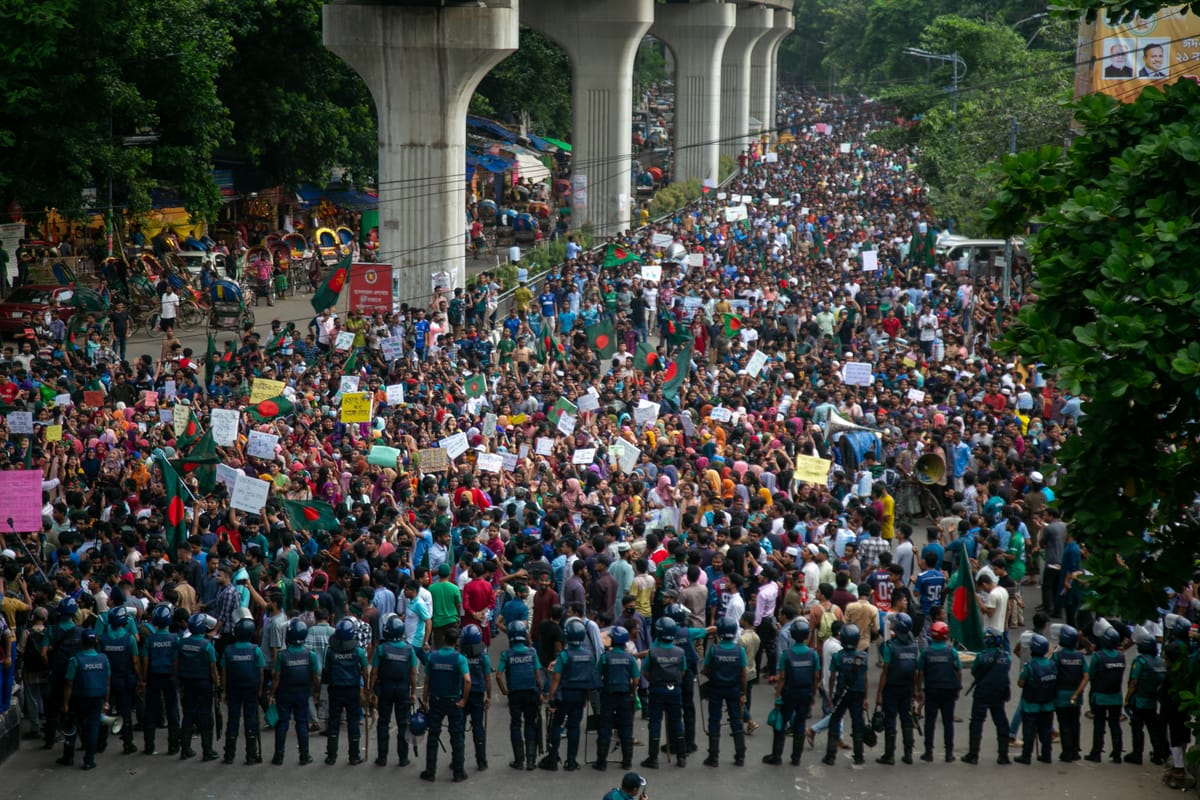EU Delays Trade Pact Talks with Bangladesh Amid Concerns Over Protest Response

Dhaka, August 1, 2024 – The European Union has postponed its trade discussions with Bangladesh in response to the government's handling of recent protests. The decision comes after violent clashes between protesters and security forces in Dhaka, raising significant human rights concerns.
Background of the Protests
The protests, primarily led by the Bangladesh National Party (BNP) and student activists, were sparked by opposition to the government's quota system for government jobs, which reserves 30% of positions for families of those who fought in the 1971 war of independence. Protesters argue that this system is discriminatory and benefits supporters of the ruling Awami League. The unrest, which began last month, escalated dramatically on July 29, with violent confrontations resulting in multiple fatalities and injuries.
Human Rights Violations
Reports from Amnesty International and Human Rights Watch detail the excessive use of force by Bangladeshi authorities. Protesters faced tear gas, rubber bullets, and physical assaults by police, even in areas near hospitals. Amnesty International verified multiple instances of police brutality, including attacks on unarmed protesters and the use of tear gas within hospital grounds, which contravenes international guidelines (Amnesty International) (Human Rights Watch).
EU's Response
The EU's decision to delay talks reflects its concern over these human rights violations. Gilmore, the EU's special representative, highlighted the importance of evaluating the pre-election environment and ensuring that political parties and media can operate freely and fairly. The EU has emphasized that failure to address these abuses could negatively impact trade relations and other forms of cooperation with Bangladesh (Human Rights Watch).
Government's Standpoint
The Bangladeshi government, led by Prime Minister Sheikh Hasina, has faced significant criticism for its handling of the protests. Despite assurances of peaceful resolutions and judicial inquiries, the government's actions have drawn international scrutiny. The ruling Awami League has accused opposition groups, including Chhatra Shibir and Chhatra Dal, of infiltrating and inciting violence within the protests.
International Reactions
The United Nations has also called for restraint and a thorough investigation into the violence. UN Secretary-General Antonio Guterres emphasized the importance of constructive youth participation in addressing Bangladesh's challenges and condemned the use of violence as a solution.
As the situation develops, the EU and other international bodies will continue to monitor Bangladesh's adherence to human rights standards and the impact on upcoming elections (Human Rights Watch).
